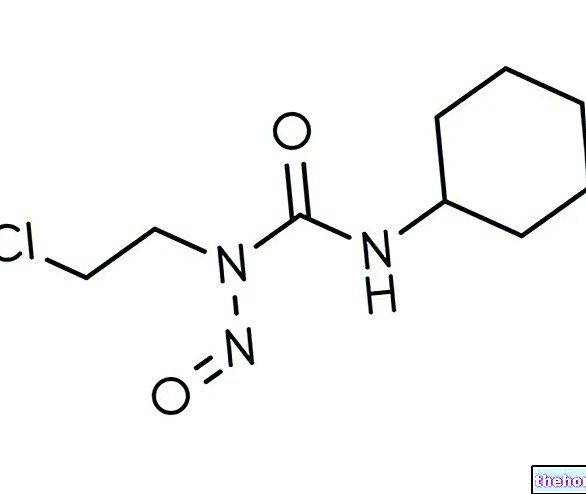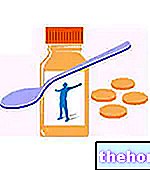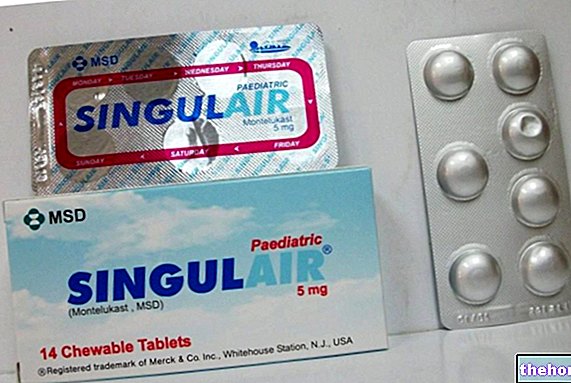Definition
Gastritis is an acute or chronic inflammatory process affecting the stomach wall.Gastritis can be resolved in a more or less short time, according to the cause that triggered it, the patient's state of health, and the timeliness with which the therapeutic process is undertaken.
Causes
Gastritis can be caused by multiple etiological agents: unregulated diet (foods rich in fats, coffee, spices, hot peppers, etc.), abuse of NSAIDs and steroids, infections, stress and smoking.
As with ulcer, Helicobacter pilory bacteria can also inflame the lining of the stomach, causing chronic gastritis.
Symptoms
Heartburn is one of the most recurrent symptoms in gastritis: it is not uncommon that, together with heartburn, the patient also complains of aerophagia, halitosis, abdominal cramps, dyspepsia, diarrhea, loss of appetite, meteorism, nausea and vomiting.
Natural Cures
Diet and Nutrition
The information on Gastritis - Medicines to Treat Gastritis is not intended to replace the direct relationship between health professional and patient. Always consult your doctor and / or specialist before taking Gastritis - Medicines to Treat Gastritis.
Medicines
Before analyzing the drugs useful for the treatment of gastritis, a clarification must be made: the typical symptoms of gastritis are not always an indicator of the disease. Often, in fact, a large meal or an "indisposition of the body" can cause heartburn, swelling and nausea: in such situations, indigestion is resolved in a short time.
It is good to resort to drugs if the symptoms persist for several days (the therapy is very similar to that for the treatment of the ulcer, although the dosage can be modified according to the severity of the gastritis):
Proton pump inhibitors (PPI: drugs of choice for the treatment of gastritis)
- Pantoprazole (eg. Peptazol, Pantorc, Nolpaza, Gastroloc): orally, take one 40 mg tablet once a day for 8 weeks. In case of non-healing at the end of the treatment, repeat the treatment for another 8 weeks. Intravenous drug administration is not the first choice treatment strategy. In case of gastritis associated with gastroesophageal reflux disease, take 20-40 mg per day for 4 weeks.
- Lansoprazole (eg Pergastid, Lomevel, Lansox): the recommended dose in the treatment of gastritis is 30 mg (tablets). Take one lansoprazole tablet once a day for 4 weeks; in case of non-healing, continue the treatment for another 4 weeks. For the treatment of gastritis associated with Helicobacter pilory, take 30 mg of lansoprazole twice daily for 7 days (before meals), together with antibiotics (eg amoxicillin, metronidazole, see triple therapy for the eradication of "H. pylori) However, the dosage should be accurate by the doctor.
Antacids (eg aluminum hydroxide + magnesium hydroxide: Maalox plus): recommended in case of gastritis associated with stomach acid and dyspepsia. Take 2-4 tablets per day (500-1500 mg) before meals and at bedtime, for at least 4 days.
Protectors of the gastric mucosa
- Sucralfate (eg Degastril, Citogel, Teva): for the treatment of chronic symptomatic and NSAID gastritis, administer 1 gram of sucralfate (chewable tablets, effervescent sachets) 4 times a day (or a 2-gram tablet twice a day ) at least one hour before meals and / or before going to bed.
- Compounds of bismuth (eg bismuth salicylate): it is useful for treating gastritis, and exerts a "direct antimicrobial action on" Helicobacter pilory. It is often used in combination with other drugs ("triple therapy") as an adjuvant for the "eradication of" helicobacter. An example of a therapeutic scheme is the following: take 2 tablets (each 262 mg) of bismuth salicylate with tetracycline (500 mg) and metronidazole (250 mg), 4 times a day for 14 days. Some patients even require quadruple therapy, which is also associated with a PPI.
Antibiotics
- Amoxicillin (eg Augmentin, Klavux) belongs to penicillins: it is a bactericide capable of inhibiting the synthesis of the cell wall of the bacteria (Helicobacter pylori). Take one tablet orally (1 gram) 2-3 times a day for 14 days. Amoxicillin is often used in combination with metronidazole and bismuth derivatives, and / or with proton pump inhibitors (triple and quadruple therapy).
- Metronidazole (eg. Metronid, Deflamon) indicated in case of chronic gastritis due to Helicobacter pylori: take one 250 mg tablet every 6 hours. Also this drug is always prescribed together with a proton pump inhibitor or bismuth derivatives: approximately, the treatment against gastritis should be continued for 14 days.
Gastritis prevention
- Follow the rules dictated by food education
- Avoid foods irritating the gastric mucosa (coffee, wine, chili, alcohol, fried foods)
- Avoid the intake of gastrically damaging drugs (NSAIDs, cortisones). Chemotherapy, antidepressants and anticoagulants can also potentiate gastric damage, causing gastritis and ulcer
- Natural remedies: chamomile, carrot, cabbage, fennel, mallow, potato
These simple dietary measures can prevent the recurrence of gastritis by avoiding or in any case reducing the dosage of synthetic drugs.
Other articles on "Gastritis - Drugs to Cure Gastritis"
- Atrophic gastritis
- Gastritis
- Gastritis: Symptoms and Complications
- Gastritis: Diagnosis and Treatment
- Diet and gastritis
- Gastritis: natural remedies
- Gastritis: nutrition and natural remedies
- Remedies For Gastritis




























